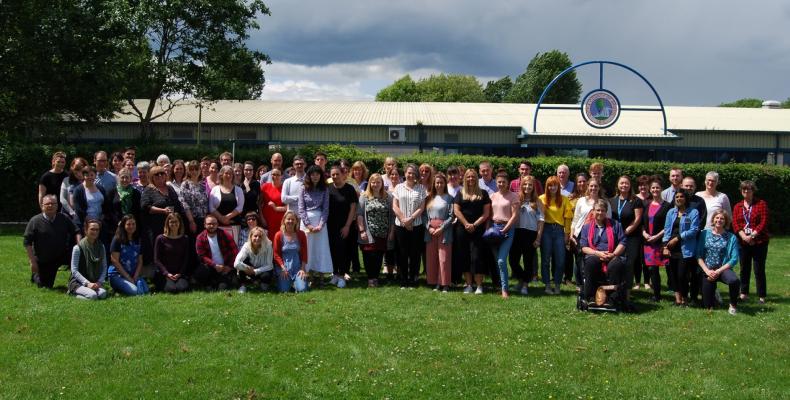Creating an LGBTQ+ inclusive service to improve data collection

This Pride month we’re spotlighting Bristol Dementia Wellbeing Service’s success in creating an inclusive environment for its LGBTQ+ staff and local population. The service improved not just its data collection but also service delivery. Here Stephen Collings shares how they did it.
The Bristol Dementia Wellbeing Service is delivered by the Bristol Dementia Partnership, which brings together the Alzheimer’s Society and Devon Partnership NHS Trust. Over three years, we have reduced incomplete data for sexual orientation – from 63 per cent in 2017 to 35 per cent in 2020 – and seen a trebling in the number of service users identifying as gay/lesbian or bisexual.
Individuals now feel that the service sees them and values their identity
There have been similar rises in those identifying as trans. Added to this, there is real encouragement that staff are feeling more confident to ask these questions. While overall numbers may appear small, it does not quantify the positive impact on individuals who now feel that the service sees them and values their identity.
The service collects demographic data as mandated through national minimum dataset. In 2017, we opted to collect further data on sexual orientation, gender identity and disability, recognising the importance of understanding service needs for these communities.
Overcoming challenges
There were two specific challenges with the collection of demographic data in relation to sexual orientation and gender identity:
- the confidence of staff in asking questions
- feedback from LGBTQ+ engagement which suggested that service users and carers may not always see the benefit of sharing this information, with many understandably suspicious about data collection.
Our community development coordinators led a service-wide staff development day on identity in the context of dementia, which included open discussions on the importance of demographic data and exploring a range of ways in which professionals might hold these conversations. This led to a revision of the demographic data collection form, including:
- giving additional context to the questions so that colleagues are able to frame questions to improve understanding of why this is important
- bringing sexual orientation data collection in line with the sexual orientation monitoring standards
- using the LGBT Foundation’s proposed wording for data collection for gender identity.
Engaging staff and the community
There is now trans-inclusive information available for all LGBTQ+ people living with dementia and for those looking after them
Since the start of the service, we have participated in the annual Bristol Pride (including Pride Online during the pandemic). After our first year at Bristol Pride, when approached for information about dementia for trans people, it was clear that the existing Alzheimer’s Society material was ‘LGB’ only. This was raised as a concern and there is now trans-inclusive information available for all LGBTQ+ people living with dementia and for those looking after them.
We have also produced and shared a document outlining all of the current LGBTQ+ support and social groups in the local area. Dementia navigators, who create personalised wellbeing plans for people with dementia, are then able to refer to this document when supporting someone who is LGBTQ+.

The service has also been involved in a local working group producing a toolkit for mental health practitioners. It aims to improve understanding of the needs of someone who is trans, in order to provide effective support.
Colleagues who have expressed specific interest in LGBTQ+ awareness have also attended training via Age UK on working with LGBT+ elders, and one of our community development coordinators attended a Stonewall Trans Ally training day.
Stephen Collings is the contract business manager and equality lead Bristol Dementia Wellbeing Service.



